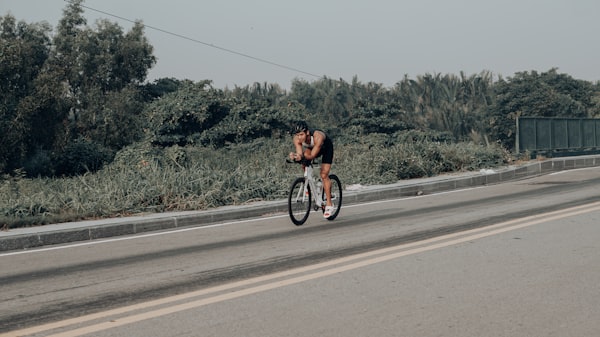
Finding Your Perfect Triathlon Coach
Carefully evaluating credentials, coaching approach, communication style, and overall rapport will help you select the ideal triathlon coach tailored to your unique needs and goals.
Finding the right triathlon coach is crucial to your athletic success and well-being. Before starting your search, take time to reflect on what you need and want from a coach. Consider the following:
- Do you prefer an in-person local coach or are you open to remote coaching?
- What communication methods work best for you (email, phone, video chat, etc.) and how frequently do you want to connect?
- What specific services are must-haves? Swim stroke analysis? Bike fitting? Nutrition guidance? Make a list of priority areas. Are you needing a once off athlete review session or individualised 1:1 coaching or athlete mental skills support?
- Do you want a coach who can connect you with the local triathlon community?
- Is a coach with a strong performance background important? Or are you more focused on personality fit?
- What coaching style motivates you best? More encouraging or more disciplined?
- What are your overall goals in working with a coach? Be specific.
Once you're clear on your needs and preferences, conduct interviews with prospective coaches. A quality coach will ask you many questions too, to understand your goals and background.
During interviews, consider asking the following key questions:
Credentials and Experience
- Are you certified? If so, which organisations and what level of certification do you hold? Certifications indicate they have undergone proper triathlon-specific training and education, e.g. Triathlon Australia or USA Triathlon.
- How many years have you coached triathletes specifically? General fitness coaching is different. Look for 5+ years triathlon coaching experience minimum.
- Have you trained athletes of my ability and with similar goals? Make sure they have experience coaching athletes at your level, whether beginner, intermediate or advanced. Avoid assuming one coaching approach fits all levels.
- Can you share testimonials or let me contact 1-2 athletes you've coached? Speaking with their past clients provides invaluable insight into their coaching style and effectiveness.
Coaching Approach
- How will you customise my training plan based on my unique goals, current ability, schedule, and preferences? Look for a coach who personalises plans rather than taking a one-size-fits-all approach.
- Walk me through your periodisation methodology and how you progress workout difficulty over time. They should use a periodised approach that strategically varies training intensity and volume over set time periods.
- How do you utilise data and technology like power, pace, HR, etc. to optimise workouts? Metrics and technology should inform their training decisions and periodic adjustments.
- How often do you reassess and modify training plans as an athlete's fitness evolves? Plans should be updated regularly as your fitness level improves.
Communication
- How do you prefer to communicate with athletes (email, text, phone, video chat, etc)? Make sure their preferred communication methods align with yours.
- What response time can I expect if I have questions or concerns? Look for 24-48 hours maximum. You need timely responses, especially regarding injuries.
- How often will we connect and review my progress? Request your optimal check-in frequency. Don't feel pressured into more or less contact than you want.
Race Preparation
- What does your taper period and pre-race planning look like? There should be a clear taper strategy and race rehearsals. Ask for specifics.
- Is competing in my goal events one of your areas of expertise? Experience with your exact races provides invaluable insight into details like the course, logistics, pacing strategy, etc.
Additional Services
- Can you provide guidance on topics like nutrition, strength training, recovery, gear selection, etc? Confirm they offer help in your priority service areas and have relevant expertise.
- Are you connected to the local triathlon community? Ask for introductions if having an in with the local network matters to you.
- Do you have relationships with bike fitters, health professionals, retailers, etc. to assemble a support team? A well-connected coach can coordinate trusted experts.
Don't forget to research the coach online and request references to contact. A quality coach-athlete partnership requires trust and communication, so make sure you have rapport. Invest time upfront finding the right fit and it will pay off in your performance and growth.